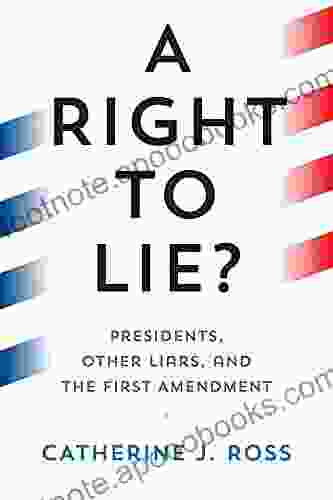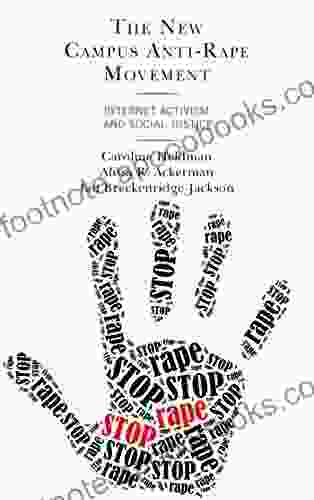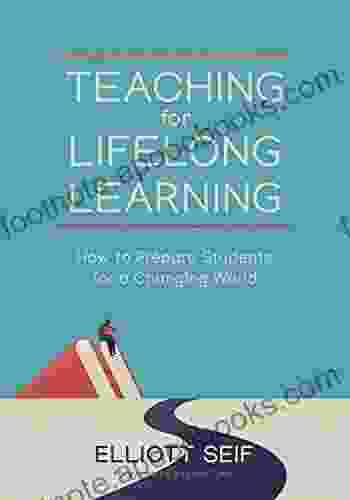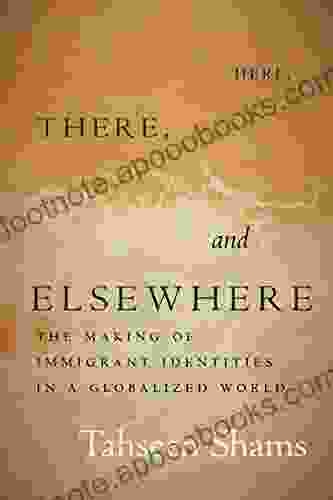Presidents, Other Liars, and the First Amendment

A Journey Through the Labyrinth of Free Speech
The First Amendment to the United States Constitution is a cornerstone of American democracy. It guarantees freedom of speech, the press, religion, assembly, and petition. This means that the government cannot censor or punish citizens for what they say or write, even if what they say is offensive or unpopular.
However, the First Amendment is not absolute. There are some categories of speech that are not protected, such as obscenity, child pornography, incitement to imminent lawless action, and defamation.
4.7 out of 5
| Language | : | English |
| File size | : | 471 KB |
| Text-to-Speech | : | Enabled |
| Screen Reader | : | Supported |
| Enhanced typesetting | : | Enabled |
| Word Wise | : | Enabled |
| Print length | : | 240 pages |
The Supreme Court has spent decades trying to define the boundaries of free speech. In the process, it has issued a number of landmark rulings that have shaped the way we think about the First Amendment.
In this article, we will take a journey through the Supreme Court's First Amendment jurisprudence. We will examine some of the most important cases in the history of the First Amendment, and we will see how the Court has struggled to balance the need for free speech with the need for public Free Download.
The Early Years: The Sedition Act and the Alien and Sedition Acts
The First Amendment was adopted in 1791. However, the federal government quickly began to pass laws that restricted free speech. The most notorious of these laws was the Sedition Act of 1798.
The Sedition Act made it a crime to publish "any false, scandalous and malicious writing" against the government or its officials. The law was used to prosecute and imprison a number of newspaper editors who criticized President John Adams.
The Alien and Sedition Acts of 1798 were even more repressive than the Sedition Act. These laws allowed the government to deport or imprison any alien who was suspected of being a threat to the United States. The laws were also used to suppress political dissent.
The Sedition Act and the Alien and Sedition Acts were both highly unpopular. They were eventually repealed in 1801. However, these laws left a lasting legacy: they showed that the government could and would use its power to silence its critics.
The 20th Century: The Rise of the First Amendment
The 20th century was a period of great progress for the First Amendment. The Supreme Court issued a number of landmark rulings that expanded the scope of free speech.
In 1919, the Court ruled in Schenck v. United States that the government could not punish speech that posed a "clear and present danger" to the United States. This ruling was a major victory for free speech.
In 1931, the Court ruled in Near v. Minnesota that the government could not censor a newspaper prior to publication. This ruling was another major victory for free speech.
In 1964, the Court ruled in New York Times Co. v. Sullivan that public figures could not sue for defamation unless they could prove that the defamatory statement was made with "actual malice." This ruling made it much more difficult for public figures to sue the press for criticism.
These are just a few of the many landmark First Amendment rulings that the Supreme Court has issued over the years. The Court's rulings have helped to shape the way we think about free speech. They have also helped to ensure that the First Amendment remains a cornerstone of American democracy.
The Challenges of the 21st Century
The 21st century has brought new challenges to the First Amendment. The Internet has made it possible for anyone to publish anything, regardless of whether it is true or accurate. This has led to a proliferation of misinformation and propaganda.
The government has also become more aggressive in its efforts to regulate speech. For example, the government has prosecuted people for making threats on social media. The government has also tried to regulate online advertising.
These challenges have put the First Amendment to the test. However, the Supreme Court has continued to uphold the principles of free speech. In recent years, the Court has ruled that the government cannot ban online advertising, and that the government cannot prosecute people for making threats on social media unless the threats are serious.
The First Amendment is a complex and ever-evolving part of American law. The Supreme Court has spent decades trying to define the boundaries of free speech, and it will continue to do so for years to come.
However, one thing is clear: the First Amendment is an essential part of American democracy. It is a guarantee of our right to speak our minds, even if what we say is offensive or unpopular.
The First Amendment is a cornerstone of American democracy. It guarantees freedom of speech, the press, religion, assembly, and petition. This means that the government cannot censor or punish citizens for what they say or write, even if what they say is offensive or unpopular.
The First Amendment is not absolute, but it is a vital part of our system of government. It allows us to express our opinions freely, and it helps to ensure that the government is accountable to the people.
We must continue to defend the First Amendment, even in the face of new challenges. It is a precious right that we must never take for granted.
4.7 out of 5
| Language | : | English |
| File size | : | 471 KB |
| Text-to-Speech | : | Enabled |
| Screen Reader | : | Supported |
| Enhanced typesetting | : | Enabled |
| Word Wise | : | Enabled |
| Print length | : | 240 pages |
Do you want to contribute by writing guest posts on this blog?
Please contact us and send us a resume of previous articles that you have written.
 Book
Book Novel
Novel Page
Page Chapter
Chapter Text
Text Story
Story Genre
Genre Reader
Reader Library
Library Paperback
Paperback E-book
E-book Magazine
Magazine Newspaper
Newspaper Paragraph
Paragraph Sentence
Sentence Bookmark
Bookmark Shelf
Shelf Glossary
Glossary Bibliography
Bibliography Foreword
Foreword Preface
Preface Synopsis
Synopsis Annotation
Annotation Footnote
Footnote Manuscript
Manuscript Scroll
Scroll Codex
Codex Tome
Tome Bestseller
Bestseller Classics
Classics Library card
Library card Narrative
Narrative Biography
Biography Autobiography
Autobiography Memoir
Memoir Reference
Reference Encyclopedia
Encyclopedia Megan Angelo
Megan Angelo Catherine Buckle
Catherine Buckle Charles K Hyde
Charles K Hyde J M Coetzee
J M Coetzee Elaine L Wilmore
Elaine L Wilmore Mwenda Ntarangwi
Mwenda Ntarangwi Cathy Broomfield
Cathy Broomfield Wayne Caldwell
Wayne Caldwell Joyce Burkhalter Flueckiger
Joyce Burkhalter Flueckiger Charity Grant
Charity Grant Robert Service
Robert Service Colette Makray
Colette Makray James Tate
James Tate Robert Kirkman
Robert Kirkman Charlie Savage
Charlie Savage Carole Wilder
Carole Wilder Caroline Warfield
Caroline Warfield Celia Anderson
Celia Anderson Catherine Q Howe
Catherine Q Howe Denis Roubien
Denis Roubien
Light bulbAdvertise smarter! Our strategic ad space ensures maximum exposure. Reserve your spot today!
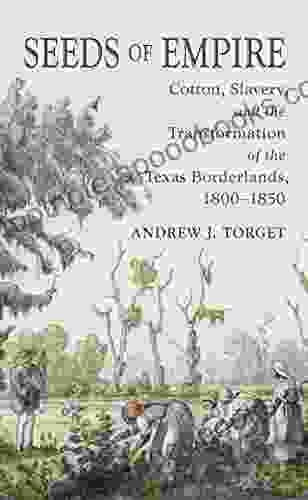
 Demetrius CarterCotton Slavery and the Transformation of the Texas Borderlands, 1800-1850
Demetrius CarterCotton Slavery and the Transformation of the Texas Borderlands, 1800-1850
 Neil GaimanJeff Wenker and Madame: A Historical Epic of Love, Revolution, and the Art of...
Neil GaimanJeff Wenker and Madame: A Historical Epic of Love, Revolution, and the Art of...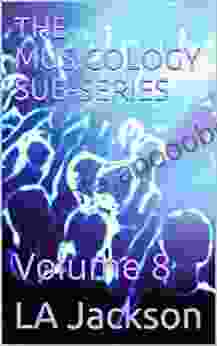
 Brennan BlairThe Musicology Sub Series Volume CGP: An Unparalleled Exploration of Music's...
Brennan BlairThe Musicology Sub Series Volume CGP: An Unparalleled Exploration of Music's... Patrick HayesFollow ·3.4k
Patrick HayesFollow ·3.4k Ivan TurgenevFollow ·19.2k
Ivan TurgenevFollow ·19.2k Julio CortázarFollow ·12k
Julio CortázarFollow ·12k Cade SimmonsFollow ·7.7k
Cade SimmonsFollow ·7.7k John GreenFollow ·6.5k
John GreenFollow ·6.5k Jackson HayesFollow ·18.1k
Jackson HayesFollow ·18.1k Craig BlairFollow ·11.1k
Craig BlairFollow ·11.1k Bernard PowellFollow ·16.8k
Bernard PowellFollow ·16.8k

 Angelo Ward
Angelo WardThe Original Home School: A Journey of Love, Learning,...
In the annals of...
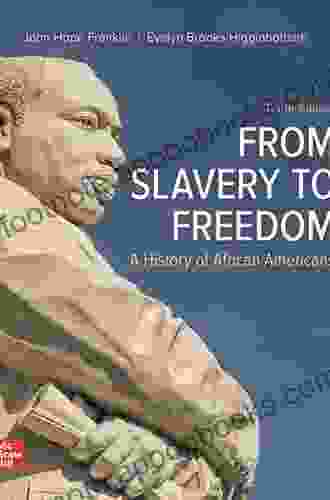
 Heath Powell
Heath PowellAfrican American Education in Slavery and Freedom: The...
The history of African...
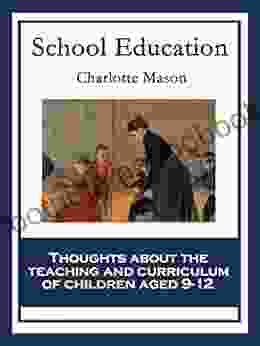
 Jamal Blair
Jamal BlairEmbrace the Wonder and Simplicity of Charlotte Mason...
Discover the...

 Cason Cox
Cason CoxUnveiling the Truth: A Mother's Courageous Journey to...
A Mother's Love Unbound: The Power of...

 Jamal Blair
Jamal BlairOver 100 Original Aussie Bush Ballads: A Journey Through...
Embark on a literary odyssey into the...
4.7 out of 5
| Language | : | English |
| File size | : | 471 KB |
| Text-to-Speech | : | Enabled |
| Screen Reader | : | Supported |
| Enhanced typesetting | : | Enabled |
| Word Wise | : | Enabled |
| Print length | : | 240 pages |


